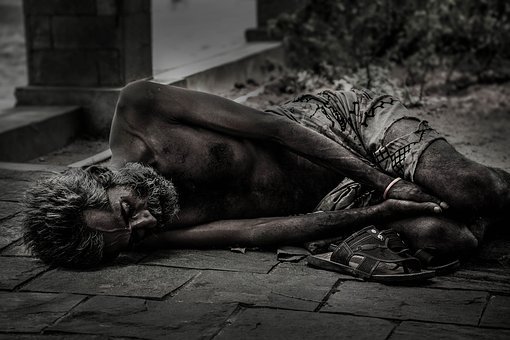A latest report released by Oxfam revealed India’s richest one percent hold four-times more wealth than what is held by 953 million people which constitute the 70% of the population of the country.
The study also revealed that the total wealth of all Indian billionaires was more than the full-year budget.
The study ‘Time to Care’ was released on Monday, ahead of the 50th Annual Meeting of the World Economic Forum (WEF) by the rights group Oxfam. The report also stated that the world’s 2,153 billionaires have more wealth than the 4.6 billion people who make up 60 per cent of the planet’s population.
Oxfam said its calculations are based on the latest data sources available, including from the Credit Suisse Research Institute’s Global Wealth Databook 2019 and Forbes’ 2019 Billionaires List.
The five-day summit of the WEF, starting Monday, will see prominent discussions on issues of income and gender inequality. According to the WEF’s annual Global Risks Report, the downward pressure on the global economy from macroeconomic fragilities and financial inequality continued to intensify in 2019.
Although global inequality has declined over the past three decades, domestic income inequality has risen in many countries, particularly in advanced economies and reached historic highs in some, the Global Risks Report flagged last week.
Income inequality in India and the World
The report flagged that global inequality is shockingly entrenched and vast while the number of billionaires doubled in the last decade. Their combined wealth, however, declined in the last year.
“The gap between rich and poor can’t be resolved without deliberate inequality-busting policies, and too few governments are committed to these,” said Oxfam India CEO Amitabh Behar.
Regarding India, Oxfam said the combined total wealth of 63 Indian billionaires is higher than the total Union Budget of India for the fiscal year 2018-19 which was at Rs 24,42,200 crore.As per the global survey, the 22 richest men in the world have more wealth than all the women in Africa.
The Oxfam report further said “sexist” economies are fuelling the inequality crisis by enabling a wealthy elite to accumulate vast fortunes at the expense of ordinary people and particularly poor women and girls. It focuses this year on policies that allow men to dominate the top ranks of business and government. Economic inequality, the report argues, is built on gender inequality.
The invisible and unaccounted labour of women
According to Mr. Behar, women and girls are among those who benefit the least from today’s economic system.
“They spend billions of hours cooking, cleaning and caring for children and the elderly. Unpaid care work is the ‘hidden engine’ that keeps the wheels of our economies, businesses and societies moving.”
“It is driven by women who often have little time to get an education, earn a decent living or have a say in how our societies are run, and who are therefore trapped at the bottom of the economy,” Behar added.
The report also showed how it would take a female domestic worker 22,277 years to earn what a top CEO of a technology company makes in one year. It further said women and girls put in 3.26 billion hours of unpaid care work each and every day — a contribution to the Indian economy of at least Rs 19 lakh crore a year, which is 20 times the entire education budget of India in 2019 (Rs 93,000 crore).
Besides, women and girls put in 12.5 billion hours of unpaid care work each and every day — a contribution to the global economy of at least $10.8 trillion a year, more than three times the size of the global tech industry.
Governments must prioritise ‘care’ as equally as growth in all sectors
Governments must prioritise care as being as important as all other sectors in order to build more human economies that work for everyone, not just a fortunate few, Behar argued.
The 63-page report also argues that world leaders are not doing enough to address the widening gap between the poor and the rich.
Getting the richest one per cent to pay just 0.5 per cent extra tax on their wealth over the next 10 years would equal the investment needed to create 117 million jobs in sectors such as elderly and childcare, education and health.Behar argues that governments should make sure that the rich pay their taxes, which should then be used to pay for amenities such as clean water, healthcare and better quality schools.














